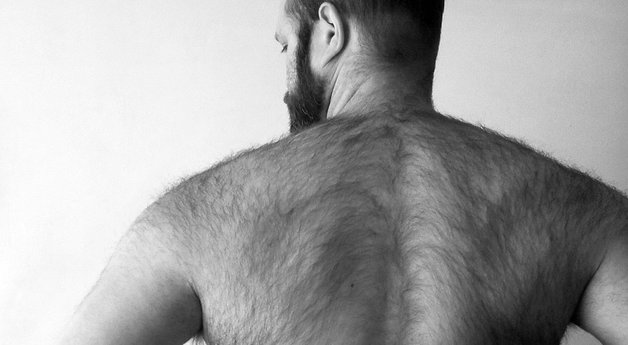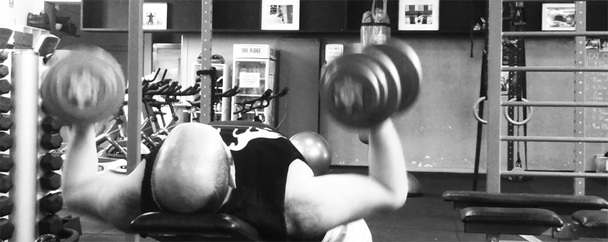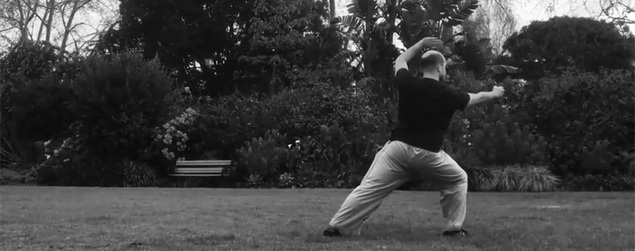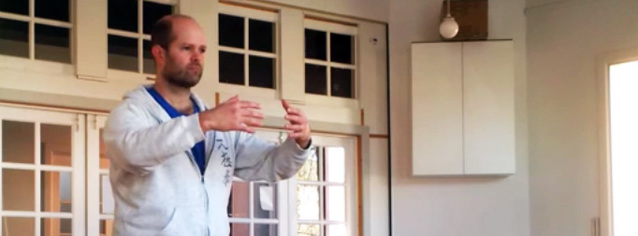|
The reason we include exercise in our lives is to make our lives easier or better in some way. It’s not because we have to, that only leads to resentment, it’s not because of obedience – or when it is, our efforts are frustrating and short-lived. When you are coerced or manipulated, of course it doesn’t work out in the long run; there’s nothing wrong with you when you rebel against emotional manipulations. Sometimes it’s right not to play along. Exercise makes your life better when you do it on your terms. And so it is simple: exercise makes life better. It makes your life easier, that is why we do it. And if it’s not, then you need to reassess.
5 Comments
A couple of trainers were talking about physiques they find inspiring. It got me thinking – of course, nobody can out Jackie Chan Jackie Chan. Nobody can be more Christine Girard than Christine Girard. There’s nobody more Kardashian than Kardashian. We all know this, even if we do use other people’s physiques as some sort of inspiration.
And of course, nobody will be more Chris than Chris, but it’s far less glamourous to simply be yourself. Where’s the fun in that?! It’s just reality! Maybe it’s because it’s no work, and we like the idea of working at something, modelling ourselves after something, having someone else lead the way. Choosing to walk your own path is a bit lonely. You are automatically endorsed and comforted when you walk behind or with someone else. A long time ago, I used to avoid chocolate. Like many, it was mostly a weight-loss thing. And I was disciplined about it and all that stuff, there were months at a time when I didn’t eat any.
But after a while, I noticed by avoiding chocolate, I wasn’t losing any weight. And when I did eat it, I didn’t gain weight either. So, why? Of course, this is because what you weigh comes down to an infinitely more complex equation than plus or minus chocolate equals blah. So then the inescapable question, the choice that remained was this: whether I include chocolate in my diet or not, it’s not a weight-based decision. It’s not about desired weight outcomes. So what then? What do I base my decisions upon? Actually it opened up a whole world of possibilities. What I eat – what we eat – if our decisions aren’t based on shame, fear, or prejudice, what then? Desire? Even that shifts. When you’re not afraid or ashamed, your desires shift too. I started to trust myself. Do Christmas. That is all, really.
If it really was only one day of indulging, I don’t think we’d have much in the way of any serious problems surrounding Christmas. But we have a way of freaking out about the multitude of celebrations, with much food, drink, all sorts. And it causes much confusion and anxiety, for any number of reasons. Whether you’re religiously pious or a bit of a fitness nut, we have a long history – us humans – of believing there’s moral superiority in the rejection of pleasure. I used to buy into this myself to a point, but I’m less prone to moralizing in general than I used to be. Or perhaps to rephrase: morals where morals belong, but what about where they don’t quite seem to fit?
If I’m to think about the logical biology of pleasure and disgust, they serve it seems, to ensure survival of the species. I’m not a biologist. My mum is, so I hope she’ll correct me if I’m off-base, but what seems logical to me is this: things that bring us pleasure: eating, sex, sleeping, exercise, relaxation, social interaction – these things can all be linked with the survival of our species, in rather direct ways. Also, these things that disgust us: mold, rot, certain foods, smells, pain – the mechanism of disgust also clearly serves to keep us alive. There are a bunch of different ways in which you can approach your strength training, and there are a range of tools you can use for different exercises too.
The imaginary barbell game is what we play, every time we lift dumbbells with the hands rigidly aligned in relation to each other. We don’t need to do this. The strength of dumbbells is versatility – they are less stable than a barbell, but more versatile. So they don’t lock you in, you don’t need to align the hands as if you’re holding on to a single, long bar, and you can move in the way that suits you best. This is a topic I believe is better watched than read, so if you’re curious about variations to the bench press, shoulder press, or how to approach training with weights, please check out my new video about this very issue. Why is it that in gyms, the yoga and stretching classes are always grouped under the banner of “mind and body”, while high intensity cardio, circuit or weightlifting classes are not? Weightlifting is all about the mind, strength is about the mind. I guess it’s because “regular exercise” is something we’re used to doing mindlessly. This is a shame. There is no way you can progress without mindfulness. It’s not religious, it doesn’t have to be serene or disciplined. Instead it’s quite simple. If you wish to progress your training in any way at all, you must think about it. You must reflect on what you’re doing, and bring your awareness and attentiveness to the task.
The plan is to create an exercise library of sorts, featuring weightlifting techniques and information, Tai Chi and Kung Fu tutorials, clips of me just messing around, and more. So my YouTube Channel should grow slowly over time.
 There are two primary approaches when it comes to structuring a strength training program: one may choose to prioritize volume or intensity. Usually it’s not possible to do both, although you may work very intensely while training with a great deal of volume. But that assumes you’re kinda advanced already. To clarify: To take a high volume approach, you would focus on getting many, many high quality reps into your session, but you wouldn’t train until failure. If you prefer the high intensity method, you wouldn’t be overly concerned with the number of repetitions, instead you would focus your energies intently on only one work-set, and you’d push as close to muscular failure on that one set as you could. The goal is one intense experience per exercise. There are pros and cons to each approach. Re-posted with permission, written by the astute and articulate Shelly of Body Positive Health and Fitness:
-- "Can you help me lose weight and keep it off?" Real talk: (please read to the end) If you are going to pursue weight loss, find out what the statistics are for people to maintain that loss via your chosen method or by any method at all, not at the 8 week mark when they seem successful, but at the 3 year and 5 year mark (usually less than 5%, and that's being generous, if there are even studies that went on that long - rare). Find out how much weight loss they count as a success (usually 5kg or so). Find out how many people were even able to maintain the diet for the duration of the short study (dropout rates are usually high). If your doctor suggests weight loss, ask them for these figures as well. |








